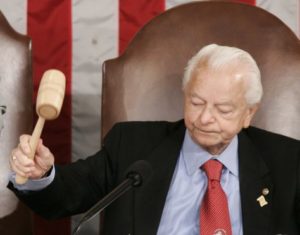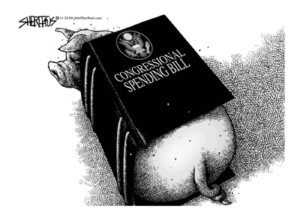Whatever happened to the term once used by budget hawks to vilify politicians who spend money “recklessly”?
That would be “pork-barrel spending.” It has vanished, seemingly, from the contemporary glossary of verbiage in today’s contentious political climate.
I remember when a former U.S. senator from Texas, Republican Phil Gramm, would boast about “bringing home so much pork, I was afraid I would come down with trichinosis.”
“Pork” is the term that refers to special project appropriations that members of Congress sneak into legislation. You know what I mean: money for bridges, airport control towers, road-and-highway improvements, federal office complexes. The late Sen. Ted Stevens of Alaska, another Republican, once was vilified for his “bridge to nowhere” for which he managed to get money appropriated.
I am not entirely opposed to “pork-barrel spending” if the project that the Congress member is pushing actually does some good for the public. I mean, these men and women, do work for us. We demand certain things from our lawmakers and, as always, it takes money to make those things appear in our states and congressional districts.
In Collin County, Texas, we have a first-term Republican, Keith Self, representing our interests. I don’t hear much about his work to ensure federal money to improve our infrastructure. Instead, I hear him talking about “election integrity,” and a whole array of social issues that, frankly, mean next to nothing to me.
And our state’s two GOP U.S. senators — John Cornyn and Ted Cruz? They, too, are busy condemning Democrats to concentrate on matters of more immediate concern to their state.
If the MAGA crowd among the GOP congressional caucus is interested in controlling federal spending while they threaten to renege on our national debt — a truly catastrophic proposal — then they will resurrect “pork barrel spending” as a fiscal talking point.


